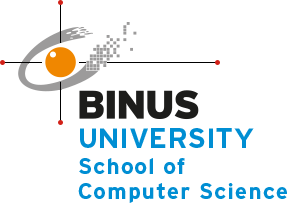Laravel vs Node.js: A Comparison of Two Popular Web Development Technologies
Laravel vs Node.js: A Comparison of Two Popular Web Development Technologies
Idea: Gusti Writer: Microsoft Copilot
If you are looking for a web development framework that can handle complex back-end logic, database interactions, and templating, you might consider Laravel. Laravel is a PHP framework that follows the MVC (Model-View-Controller) architecture and provides many built-in features and packages to simplify web development. Laravel is one of the most popular PHP frameworks, with a market share of 9.45% and more than 40K companies using it .
On the other hand, if you are looking for a web development framework that can handle real-time applications, high concurrency, and scalability, you might consider Node.js. Node.js is a JavaScript runtime environment that allows you to run JavaScript code on the server-side. Node.js is based on an event-driven and non-blocking I/O model, which makes it fast and efficient for handling asynchronous operations. Node.js is also one of the most popular web development technologies, with a market share of 12.18% and more than 50K companies using it .
So, how do Laravel and Node.js compare in terms of performance, scalability, database support, testability, security, and developer community? Let’s find out.
Performance
Performance is one of the most important factors to consider when choosing a web development framework. Performance can affect user experience, SEO, conversion rates, and revenue. However, performance is not only dependent on the framework itself, but also on the application logic, the server configuration, the network latency, and many other factors.
In general, Node.js is faster than Laravel, as it uses JavaScript as its programming language and runs on Google’s V8 engine, which is highly optimized for speed. Node.js also has a non-blocking I/O model, which means it can handle multiple requests simultaneously without waiting for any blocking operations to finish. This makes Node.js ideal for real-time applications that require high throughput and low latency.
Laravel, on the other hand, uses PHP as its programming language and runs on the Zend engine, which is slower than the V8 engine. Laravel also has a blocking I/O model, which means it can only handle one request at a time and has to wait for any blocking operations to finish before moving on to the next one. This makes Laravel less suitable for real-time applications that require high concurrency and scalability.
However, this does not mean that Laravel is always slower than Node.js or that Node.js is always faster than Laravel. There are many ways to optimize the performance of both frameworks, such as using caching, load balancing, clustering, microservices, etc. Moreover, performance is not the only factor to consider when choosing a web development framework. There are other aspects that might be more important for your project’s needs.
Scalability
Scalability is another important factor to consider when choosing a web development framework. Scalability refers to the ability of an application to handle increasing amounts of traffic or data without compromising its performance or functionality. Scalability can be achieved by either scaling up (adding more resources to a single server) or scaling out (adding more servers to a cluster).
Node.js has an advantage over Laravel in terms of scalability, as it has a built-in module called Cluster that allows you to create multiple instances of your application and distribute the load among them. This way, you can scale out your application horizontally and take advantage of multiple cores or servers. Node.js also has a large ecosystem of tools and libraries that can help you with scaling your application, such as PM2 , Nginx , Redis , MongoDB , etc.
Laravel does not have a built-in module for clustering or load balancing, so you have to rely on external tools or services to scale out your application horizontally. However, Laravel does have some features that can help you with scaling your application vertically (adding more resources to a single server), such as queues , broadcasting , caching , etc.
Database Support
Database support is another important factor to consider when choosing a web development framework. Database support refers to the ability of a framework to interact with different types of databases (such as relational or non-relational) and perform various operations (such as querying or updating) on them.

Comments :